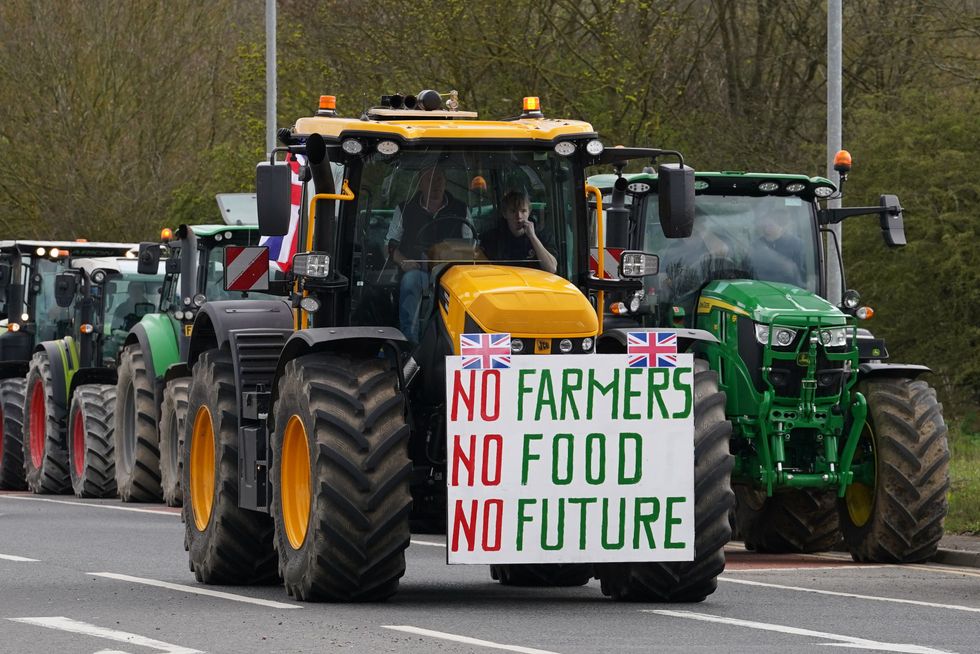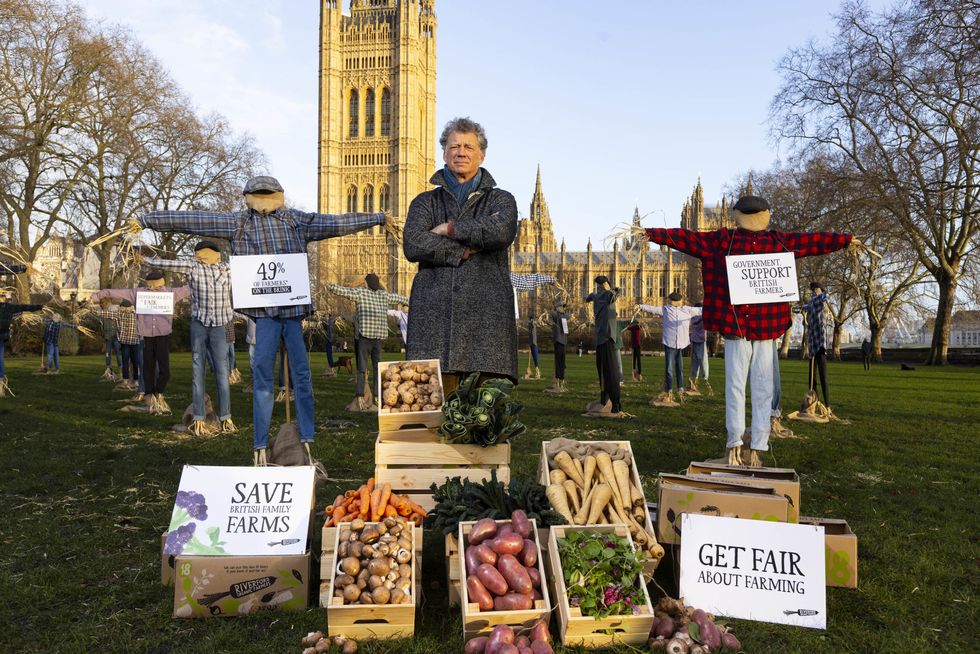‘Do not betray us’: Thousands of farms face extinction if Labour abolishes inheritance tax relief
Scrapping agricultural relief would “rip the rug from under hard-working farmers” and “damage the UK’s food security”, warns President of CLA
Don't Miss
Most Read
Thousands of family farms across Britain will be “torn apart” if Rachel Reeves removes their relief from inheritance tax in her upcoming budget next week.
The treasury has refused to rule out such a move despite warnings it would kickstart the “death of the family farms”, widely perceived as the backbone of British agriculture.
Farms are currently exempt from inheritance tax- charged at 40 per cent on assets over £325,000- meaning farmers can pass their farms to their children when they die without a massive tax bill.
The relief is particularly vital for small family farms operating on tight margins with little to no scope to pay inheritance tax out of farm income.
Indeed, government statistics show 17 per cent of UK farms failed to make a profit in 2022/23, whilst 59 per cent made a profit of less than £50,000.
Despite their small profit margins, these farms would be slapped with a massive tax bill because they are asset rich thanks to the high value of land.
To cover the bill, they would have to sell large chunks of land and break up farms which have, in many cases, been in the same family for centuries.
Victoria Vyvyan, President of the Country Land and Business Association, has warned the government removing relief: “would rip the rug from under hard-working farmers” and be a “catastrophic betrayal.”
“Someone inheriting a family farm from their parents might be forced to sell up to 40% of it to pay the inheritance tax bill. If 5% of farms have to sell at their next point of inheritance, 27,000 face going out of business.”

Farmers on their way to London to raise awareness of acute problems facing agriculture, March 2024
|PA
Diversified farmers would be hit even harder, with 46-54 per cent of their land needing to be sold if relief was removed.
Vyvyan continued: “In many cases it would be the end of the family farm and a hollowing out of rural communities, stifling rural entrepreneurialism.
“For generations, people who own land have considered themselves temporary custodians, to pass it on to those who will follow.
“It inspires long-term thinking like tree planting and stewardship and a quiet acceptance that those who make the decisions will never see the fruits of their labours.
“If these reliefs are scrapped, it will upend it all.
“I have wider concerns that there is no vision for a positive economic future for us in the rural community, we’re seen as disposable, and that’s unacceptable.
“We are urging farmers to write to their MP asking them to help protect food security and support the rural economy by maintaining these reliefs.”

'Get Fair About Farming' campaign protest outside Houses of Parliament in January 2024
|PA
Mel Stride, Member of Parliament for Central Devon, one of Britain’s most rural constituencies, said: “Our farmers are facing unprecedented challenges right now, from extreme weather events to high operating costs.
"Scrapping the Agricultural Property Relief would be a devastating blow to family farms that have sustained rural communities for generations.”
“At a time when we should be supporting our food producers, this move risks pushing many over the edge financially and mentally.”
Office for National Statistics (ONS) figures showed that in 2021 alone, 36 farmers across the UK took their own lives.
A poll of 450 farmers under 40 by Farm Safety Foundation found 95 per cent agreed that poor mental health is the biggest hidden problem facing the industry today.
Long working hours often spent alone were identified as a large factor in farmers’ deteriorating mental health. 61 per cent of farmers surveyed said they worked a 10-hour day on average, with 15 per cent working a 14-15 hour day.
Many admitted to rarely or never taking a day off.
Latest figures from the Health and Safety Executive show farming is the most dangerous sector to work in in Britain, with 35 deaths from accidents on farms in 2023/24.
LATEST FROM MEMBERSHIP:

Mel Stride has called on Labour to support farmers, not scrap their inheritance tax relief
| PAStride continued: “It's not just about inheritance tax - it's about preserving a way of life and ensuring our long-term food security through farms being able to be passed between generations without being broken up to pay this tax.”
Di Clements, a dairy farmer in southwest Wales, warned: "This would be the final straw for many family farms and have fatal consequences for rural Britain and our food security.
"We always knew Labour never cared for farmers, but if the chancellor does this, she will have proved us right."
The potential scrapping of farmers’ inheritance tax relief comes as Rachel Reeves scrambles to fill a “£40billion black hole” in the nation’s finances.
The Chancellor has committed “to not increase taxes on working people”, ruling out rises in National Insurance, Income Tax, or VAT, but leaving inheritance tax- and specifically abolishing farmers’ relief- as a possible option for raising cash.
When GB News asked for clarification, a Treasury spokesperson said: “We do not comment on speculation around tax changes outside of fiscal events.”
Labour has been criticised for clearly defining what a “working person” is. Definitions given by different cabinet members have thus far not mentioned farmers.










